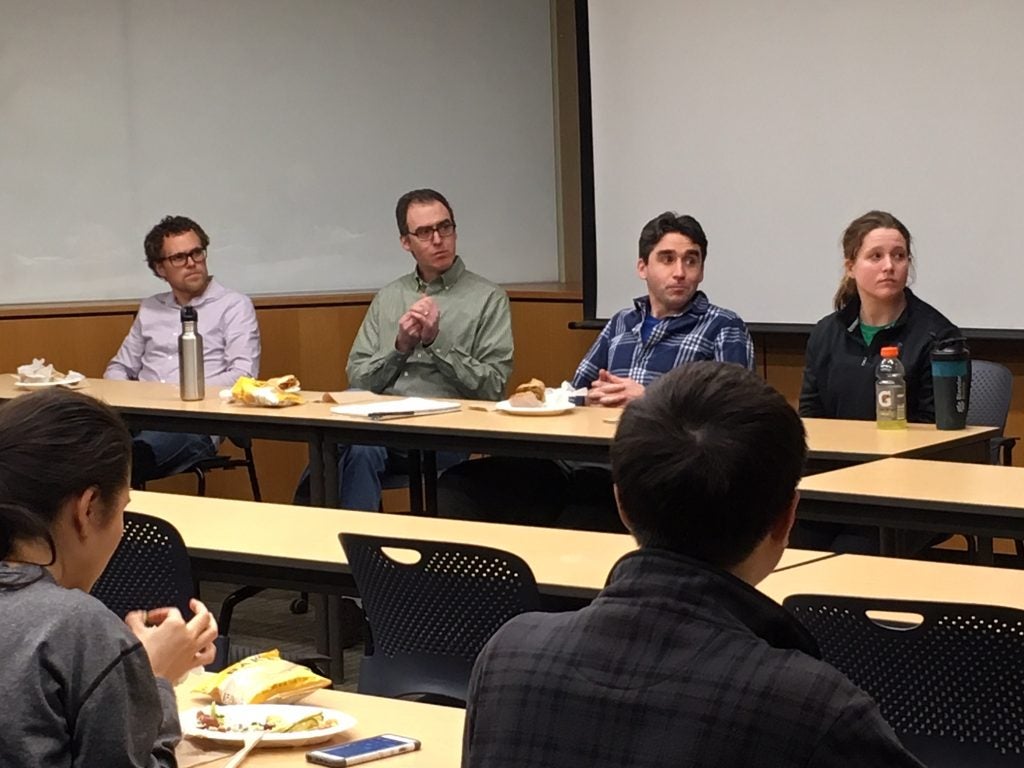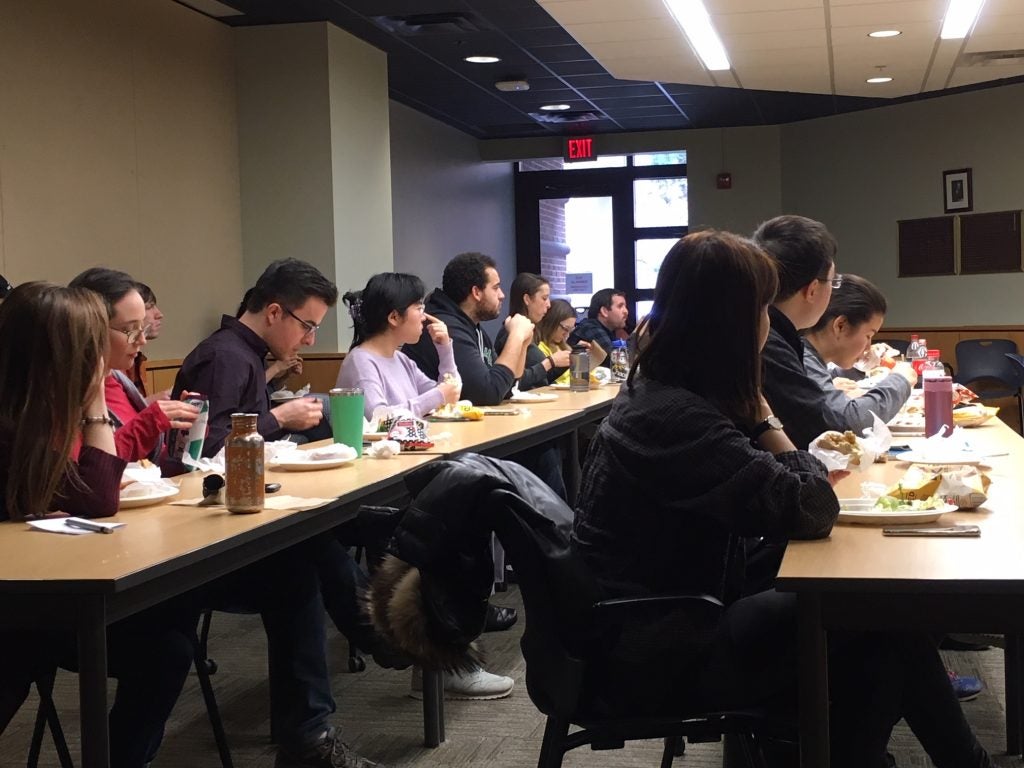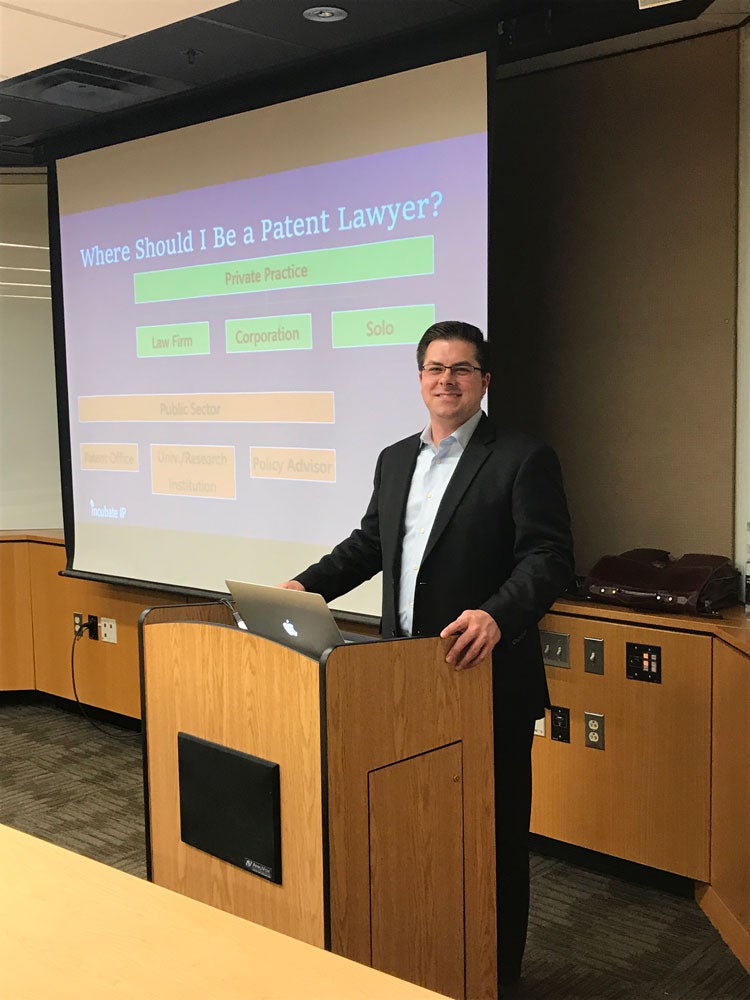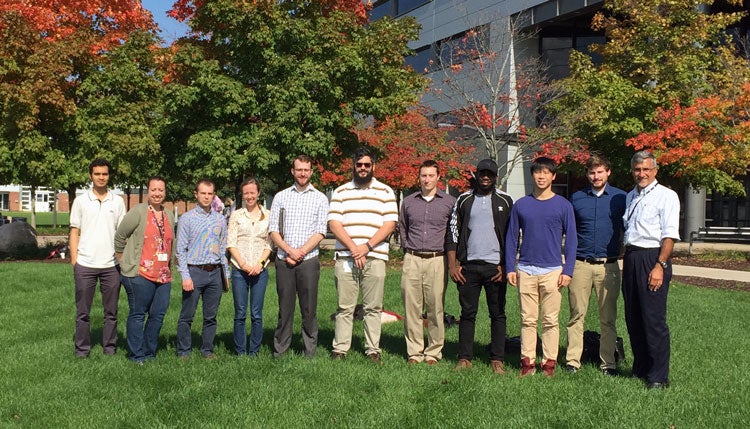 Thinking about Internships
Thinking about Internships
On Friday, March 9, 2018, CALC|UM hosted a panel on internships where two graduate students who had interned during the summer, and their advisors, shared their experiences and opinions. Amanda Dewyer (intern at Applied Materials) and Alex Nett (intern at AbbVie) along with their advisors, Professors Paul Zimmerman and John Montgomery, started the conversation with a brief introduction and followed by answering the audience questions.
The discussion involved a wide range of questions from how to find an internship position to how to communicate effectively with your advisor to be able to intern and manage time effectively to take time off of research during summer. The question of timing (when – during the summer with at least a term of the PhD program remaining – and how long – 2-3 months) took up quite a bit of time in the discussion about internships.
Although not represented on the panel, the two faculty members noted that internships have also involved joining a research group in another setting, usually outside the US, as well as internships where the visiting student was supervising undergraduate research students, as a scientist in residence, in the group of a faculty member at a PUI.
The take-away messages from this session where:
(1) internships are not for everyone, and the student and the faculty member both need to see the benefits;
(2) the non-research benefits were seen as just as important as the research benefits, from the perspective of understanding the new setting, applying one’s expertise in a way that might emulate the start of an actual job, and for the (huge) benefit of another letter and entree into a new network; the added benefit to one’s overall education and experience was uniform, with the strong caveat that not everyone reaches the point where doing this is the right choice;
(3) there is going to be no support for internships for young students – they cannot contribute enough; this came up and sank like a lead balloon – not enough expertise to be attractive to an external site;
(4) what is the motivational effect of knowing that possible internships exist on the performance of a graduate student who sees one as something useful?— does that student actually behave differently knowing that there is an assessment for being eligible for doing this desirable thing?;
(5) one size does not fit all, and (as with CSIE|UM and CALC|UM) the idea of having an internship “policy” is a good idea, and should be something that an interested student ought to bring up with prospective mentors as they are thinking about which research group they want, and how that balances in the decision-making about which group to join.
A brief follow-up survey from the current graduate students (100/234 response rate) shows a deep interest in internships.
Of the respondents, 13 had done an industrial internship, 19 had done research in another academic setting, 2 had supervised undergraduate research students in a PUI setting. The ratio of US: non-US locations was 2:1.
Interest in doing internships was 65:21 in favor, with 19 for an industrial setting, 34 for research in another academic setting, and 20 supervising research in at a PUI. The ratio of US to non-US interest was 2:1.











